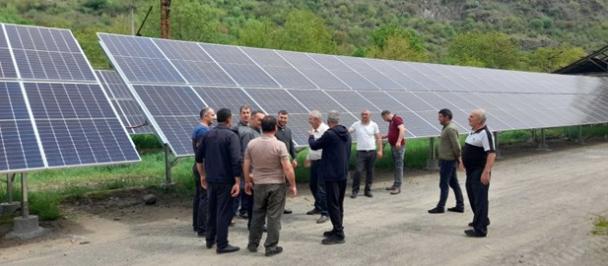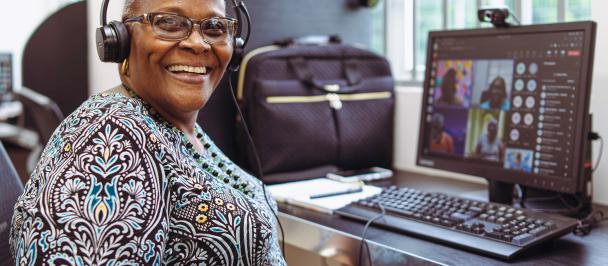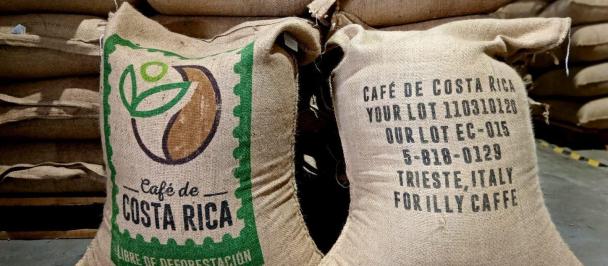Opening Remarks by UNDP Resident Representative, a.i, Louis Kuukpen at the launch of the TIWB-CI
Tax Investigation Without Borders - Tax Crime and Investigations (TIWB-CI)
April 18, 2024

UNDP Resident Representative a.i - Louis Kuukpen
Cllr. Alexandra K. Zoe, Commissioner, Liberia Anti-Corruption Commission;
Cllr. Massa Jallabah, Deputy Minister for Administration designate, Ministry of Justice/Republic of Liberia;
Hon. William K. Mulbah, Deputy Inspector general for Administration, Liberia National Police;
Ministry of Finance & Development Planning (TBC);
Mr. Amos Yollah Boakai, Deputy Director General, Financial Intelligence Agency of Liberia;
General Auditing Commission of Liberia (TBC);
Hon. Steve Zargo, Commissioner General, Liberia Immigration Services;
Mr. Abraham Kromah, Director General, Liberia Drug Enforcement Agency; and
Mr. Jeffrey Yates, Head of Secretariat, Liberia Extractive Industries Transparency Initiatives
Our distinguished partners from ATAF, OECD, Emma Scott and Ben Dickinson
Our Expert from the Kenya Revenue Authority, Ms Olivia Okello
Colleagues from UNDP, Stanley and Desma
All participants online and in person
Distinguished ladies and gentlemen,
Greetings,
It’s a pleasure to participate in this launch of the Tax Inspectors Without Borders (TIWB) Tax crimes investigation programme in Liberia. This initiative marks a significant step in our ongoing effort to enhance tax administration, mobilize domestic resources effectively, and expand the fiscal space so that Liberia’s resources can be used for the sustainable and inclusive development of Liberia.
Building on our prior collaboration with the Government of Liberia, we are delighted that this initiative will further reinforce our collective effort in mobilizing domestic resources. The development of the Domestic Resource Mobilization Strategy underpinned by tax gap analysis, an enterprise fraud and risk management strategy, a fiscal space study and the production of beneficial ownership disclosure report as well as a development finance assessment, are foundational steps for expanding Liberia’s fiscal space, which this initiative builds on.
On behalf of the United Nations Development Programme (UNDP) and our esteemed partners at the Organization for Economic Co-operation and Development (OECD), with the support of a technical expert from the Kenya Revenue Authority, we extend our congratulations to the Liberian Revenue Authority on the launch of this initiative.
This Programme isn’t just another event on the calendar; it’s a continuation of our shared successes, including three Tax Inspectors Without Borders (TIWB) programmes that have already made their mark here, and an ongoing audit assistance on the extractives sector that's making waves. It’s a testament to our collective dedication to making tax administration better and strengthening our ability to mobilize national resources.
This continued collaboration shines a light on the Government of Liberia's solid dedication towards achieving sustainable development goals, not just within its borders but regionally and globally as well.
In reflecting on recent progress, Liberia reported a 4.8% growth in its economy in 2022, a testament to the strength of the mining and agricultural sectors. This advancement is particularly noteworthy given the backdrop of economic downturns Liberia faced during the Ebola outbreak and the COVID-19 pandemic. These periods underscored the unpredictability of Liberia's economic trajectory amid global crises.
Looking forward with optimism to Liberia's prospects, we acknowledge the country's resilience and ability to bounce back from adversities. Even though our growth rate has not yet reached the ambitious target of 7% annually—deemed necessary to achieve the Sustainable Development Goals (SDGs)—the resilience displayed in bouncing back from past economic downturns showcases Liberia's potential for recovery and stability.
In fact, a recent African Development Bank report on Liberia’s growth diagnostics argues that the rate of growth is below Liberia’s potential, if binding constraints are unraveled and sustained efforts made to drive sustainable and inclusive development.
Moving forward, there's a pronounced need to broaden our fiscal space. This expansion is crucial for securing the necessary resources to address developmental priorities and overcome barriers to sustainable growth. As of 2020, our tax-to-GDP ratio stood at 14.4%, trailing behind the averages for both the OECD and Sub-Saharan Africa.
The journey towards enhanced public financing and socioeconomic betterment in Liberia continues. It demands ongoing dedication, effective capacity building, strategic investments, and collaborative efforts to navigate through existing challenges and to capitalize on opportunities for inclusive growth.
The initiative we're launching today is a clear signal of Liberia's dedication to steering towards a promising direction and commitment to improving financial stability and socioeconomic development in these changing times.
Our partnership with the OECD through the TIWB programme is a strategic complement to the existing Domestic Revenue Mobilization (DRM) initiatives we're spearheading at the UNDP Country Office with the Liberian government. This includes reforming personal income taxes, overhauling the simplified tax system, and streamlining tax exemptions among others.
The introduction of the Tax, Crime, and Investigations programme in Liberia—a pioneering effort in the country—gains unprecedented importance by extending its focus beyond tax administration. This initiative calls for collaborative efforts with various government agencies represented here today, aiming for a unified and effective strategy to enhance public resources. This collaboration is vital for devising a concerted approach to tackling tax-related crimes and bolstering DRM in Liberia.
The TIWB programme is instrumental in bridging Liberia's financing gaps. It holds the potential to mitigate the budget deficit and enhance the tax revenue share in the GDP. This potential is underscored by the programme's track record of mobilizing over USD 1.8 billion in additional tax revenues across 35 African countries in recent years. Since 2016, Liberia has benefited from TIWB’s tax audit support.
Moreover, the TIWB programme offers a platform for engaging with experts and sharing national experiences, crucial for understanding the unique challenges of international tax administration and developing viable solutions.
Today's launch will deliver both on-site and virtual support, including immediate assistance for complex tax evasion cases. The involvement of TIWB experts is set to radically transform the approach to tax and crime investigations in Liberia, marking a significant shift by the end of this project.
We hope that through these other prior TIWB initiatives, Liberia can leverage capacity-building assistance for tax audit support in industries such as manufacturing, telecom, gaming, finance, and insurance through the transfer of practical knowledge and audit skills.
We remain committed to this partnership as part of our Tax for Sustainable Development Goals Initiative and specifically our regional project on DRM for a renewed social contract, and we wish to emphasize our shared aspiration for providing support to the government on making fiscal policies pro-poor and pro-equity so that no one is left behind. This includes diversifying government revenues from the extractive sector to a greener transition and efficient personal and corporate taxes.
In alignment with the national development plans, we will leverage UNDP expertise in different aspects of the extractive sector, our country presence and the TIWB experience. Ultimately, this will enable Liberia to mobilize taxation and precisely support the achievement of SDGs 7, 8 and 9, and SDG 12.
Therefore, this knowledge resource availed through TIWB collaboration will help meet the dual challenge of preventing illicit financial flows and improving domestic resource mobilization.
I cannot overemphasize how pleased we are that with Liberia’s launch of this TIWB-Criminal Investigation initiative, it now joins 5 others in Africa for game-changing outcomes in tax administration, including improved rating on the Public Expenditure and Financial Accountability (PEFA) scores.
UNDP will therefore continue to play our supportive role- be it facilitating the country’s access to TIWB, investing in digital technology, facilitating the programme, forging partnerships and cooperation on new horizons and ensuring long-term impacts on poverty and inequality reduction.
To close, and on behalf of UNDP and our partners at the OECD, we commend the Liberian Revenue Authority and the anti-graft institutions, the Ministry of Justice, the national police, and all very important agencies we have present here today for embarking on this initiative.
We also thank the Kenya Revenue Authority and our TIWB Expert who will work with MACs from the Liberian government to improve tax compliance and increase domestic revenue.
The UNDP is committed to supporting the Liberian government throughout this journey, leveraging our global experience to ensure the program's success. Together, we can achieve a more efficient tax system and sustainable economic growth for shared prosperity in Liberia.
Thank you.

 Locations
Locations

